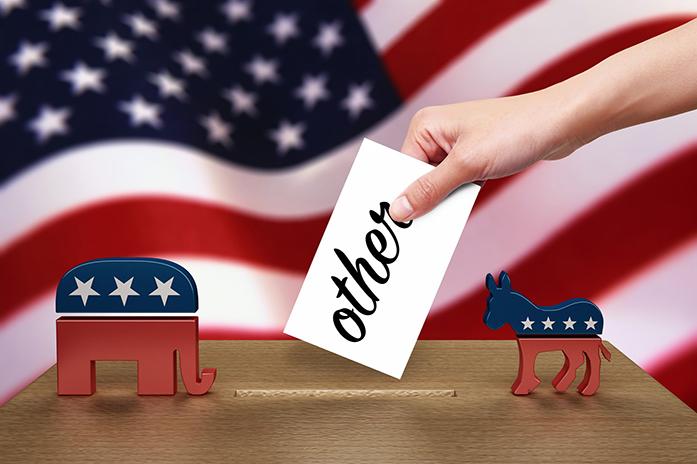In a presidential election characterized by pettiness and scandal, it is no wonder that the topic of third-party candidates has begun to appeal to many voters.
The consideration of third-party candidates calls into question the two-party system. By exploring social media and the blogosphere, it is evident that many dissatisfied members of the electorate are looking toward either Jill Stein (Green Party) or Gary Johnson (Libertarian Party) to redeem America.
While the attraction to third parties is understandable given the issues with the two-party system, it is important to examine these candidates not as alternatives but as policymakers with the experience and knowledge to run the United States. Johnson and Stein, to name a couple, fail to meet the proper qualifications for this country’s highest office.
Johnson, in an attempt to rally additional support for his independently run campaign, has routinely made media appearances.
During an MSNBC interview in early September, Johnson was asked how he would handle the crisis in Aleppo, the center of Syria’s brutal civil conflict. His simple response of “What is Aleppo?” spoke volumes to his ignorance on foreign policy.
Last week MSNBC interviewed Johnson (again) and asked which world leader he admired most. While his running mate tried desperately to keep him afloat, Johnson was unable to provide an answer.
He did offer that he was experiencing an “Aleppo moment,” making an unapologetic reference to a CNN interview where he proved to be unfamiliar with the important Syrian city.
For a candidate who brags about a new vision of American foreign policy, he consistently demonstrates his short comings, undermining his bid for the presidency.
The other third-party candidate attracting attention, Stein, is similarly inadequate.
Stein, a medical doctor, denies the viability of vaccines. She also promotes a Roosevelt-esque “Green New Deal,” advocating a full transition to renewable energies by 2030. On top of the scientifically and politically unsound ideas, her limited political experience leaves her unprepared for the presidency.
The irony of this election is that the seriousness of its outcome is not matched by candidates with serious qualifications. Three of the four major candidates, Donald Trump, Stein, and Johnson, lack the experience or the knowledge necessary to perform well as president.
Why, then, has it become fashionable to hire someone without the necessary experience and insight for the job?
This race is often lambasted for ultimately being the choice between the lesser of two evils, but when one of those evils is eitherhatred or incompetence, the evil of corruption is the clear choice. Protest votes become dangerous when they remove support from the qualified candidate in the race, instead throwing them at unprepared idealists. For all of Hillary Clinton’s faults and mistakes, her experience and commitment to public service makes her the viable choice.



